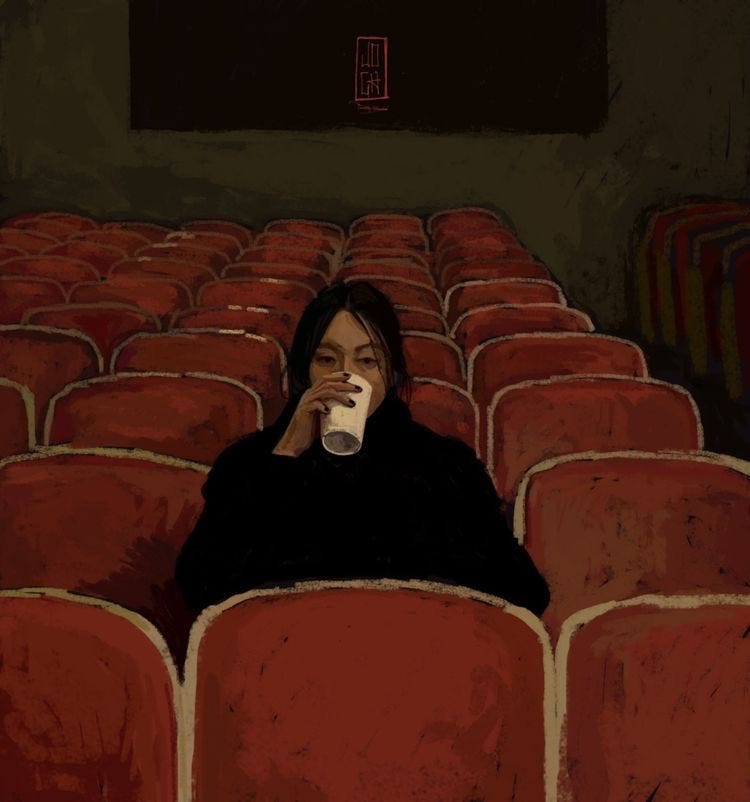This was written in June 2024
I read what I think will forever be one of my favorite poems by Sylvia Plath (and in general) this afternoon. Soliloquy of the Solipsist is a poem written in first person in the perspective of a solipsist, someone who is extremely egocentric, seeing their own mind as the only one to surely exist. I found this poem to be so well done, containing a lot of clear references to solipsism but also certain parts that I think pertain to mental health. I'll get into this in a second.
First off, here's the poem:
I?
I walk alone;
The midnight street
Spins itself from under my feet;
When my eyes shut
Those dreaming houses all snuff out;
Through a whim of mine
Over gables the moon’s celestial onion
Hangs high.
I
Make houses shrink
And trees diminish
By going far; my look’s leash
Dangles the puppet-people
Who, unaware how they dwindle,
Laugh, kiss, get drunk
Nor guess that if I choose to blink
They die.
I,
When in good humor,
Give grass its green
Blazon sky blue, and endow the sun
With gold;
Yet, in my wintriest moods, I hold
Absolute power
To boycott color and forbid any flower
To be.
I know you appear
Vivid at my side,
Denying you sprang out of my head,
Claiming you feel
Love fiery enough to prove flesh real,
Though it’s quite clear
All your beauty, all your wit, is a gift, my dear,
From me.
Off the bat, the solipsism is quite clear. Whoever is narrating this poem (Plath, who knows?—the first person POV sort of leads me to believe she is) has the belief that their mind is the only one to surely exist, making all others questionable and possibly just a figment of the narrator's imagination. Plath highlights this idea by describing people as unaware that "if I choose to blink/They die."
Not to mention, the final stanza changes to 2nd person POV as the narrator explains to their audience (readers, potentially) that they are in denial, that their existence is not a result of their own accord. The poem ends with the Plath writing that it's quite clear everything the addressee has (beauty, wit) is a gift not from someone above or themselves, but the narrator. This is the clear result of solipsism.
Obviously, the main subject of this poem is solipsism and what it looks like in the mind of someone who has it, but I noticed something later on that I interpreted a little differently than what seems obvious. In the 3rd stanza of this poem, the narrator describes colors and flowers and all things beautiful as something they have "absolute power" over.
I think this is very allusive to mental health and the tunnel vision we humans get depending on our mood. When we are happy, we see beautiful things in the world. When we are upset, those things seem to dim. That raises the question--do they dim? Or do they just seem to? That is the larger question expressed in this poem, I think. The 3rd stanza of this poem is my personal favorite because of how it (subtly) explores the idea of tunnel vision and mental health. This is just my interpretation, of course.
All in all, Sylvia Plath was a great mind. I love her work and continuously look to it to see myself, which I often do. Although it's not a very popular poem of Plath's, Soliloquy of a Solipsist is a digestible, great poem that explores the basis of solipsism and egocentric views while subtly alluding to mental health and tunnel vision. It's a poem for everyone.




